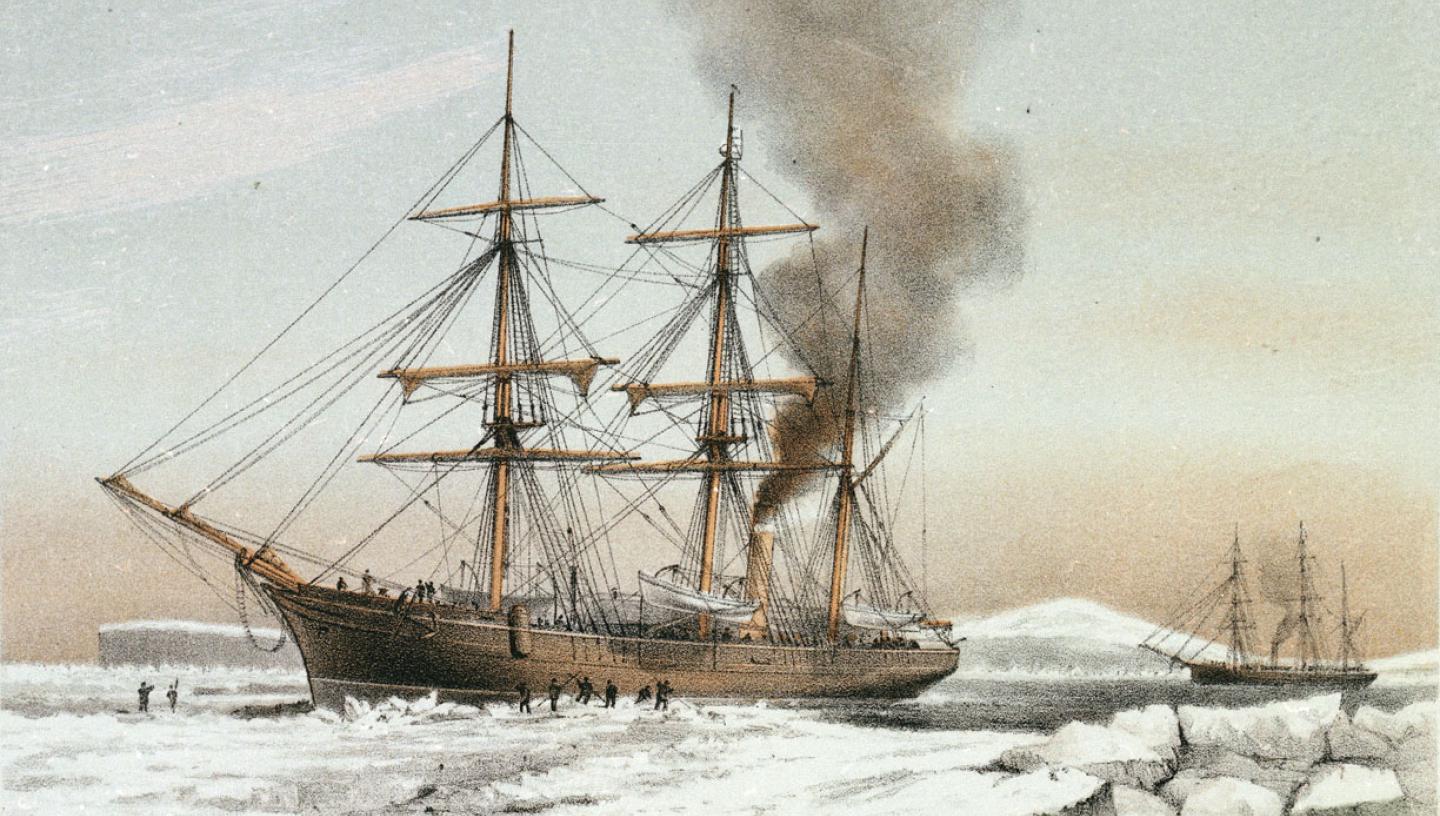
Christopher Middleton North-West Passage expedition 1741–42
In 1741, Anglo-Irish MP Arthur Dobbs commissioned Christopher Middleton, a captain in the Hudson’s Bay Company, to search for the North-West Passage.
Dobbs’s interest in the North-West Passage - the seaway through the Arctic, linking the Atlantic and Pacific Oceans - was motivated by nationalism, as he wanted Britain to be the first to find it – and also because he objected to the monopoly on trading enjoyed by the Hudson’s Bay Company, in Canada.
Dobbs chose Christopher Middleton because he had already established his reputation as a navigator. His work on the variations of magnetic needles in Hudson Bay had led, in part, to him being elected a Fellow of the Royal Society –no small feat for a ship’s captain of only two years’ standing. Dobbs arranged for Middleton to receive a naval commission and he left the company to command the Discovery and the Furnace.
Discovering Wager Bay
The ships departed from Port Churchill, in Hudson Bay, in late June 1742 and headed north. They discovered and entered what is now known as Wager Bay, missed by previous expeditions. They were kept there for several weeks by drifting ice and took the time to explore the area. Middleton concluded that his new discovery was indeed a closed bay and did not lead to the North-West Passage. When the expedition left Wager Bay it headed north into Roes Welcome Sound. Ice made a journey into the Foxe Basin impossible and an investigation of Repulse Bay left Middleton satisfied that there was no route to the Pacific by heading west, so he set sail for England.
Bitter dispute
Dobbs refused to accept Middleton’s findings and accused him of having been bribed to falsify his records by the Hudson’s Bay Company, who wanted to keep extra shipping away from their operations. This put in motion a long and bitter dispute between Dobbs and Middleton who both published pamphlets publicly repudiating one another – a dispute that effectively wrecked Middleton’s career as one of England’s most skilled explorers and navigators.